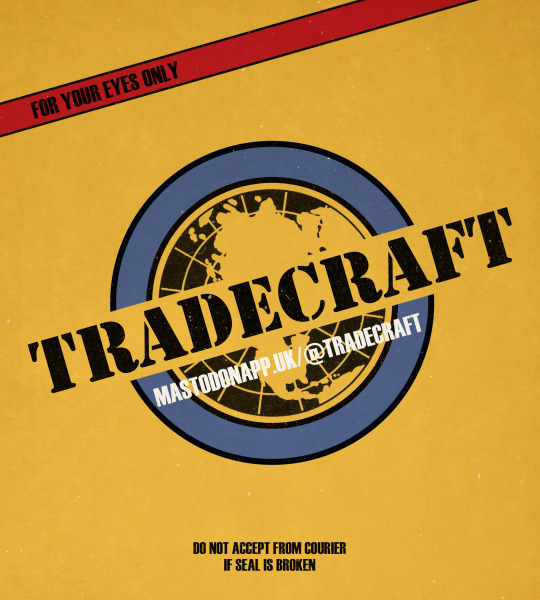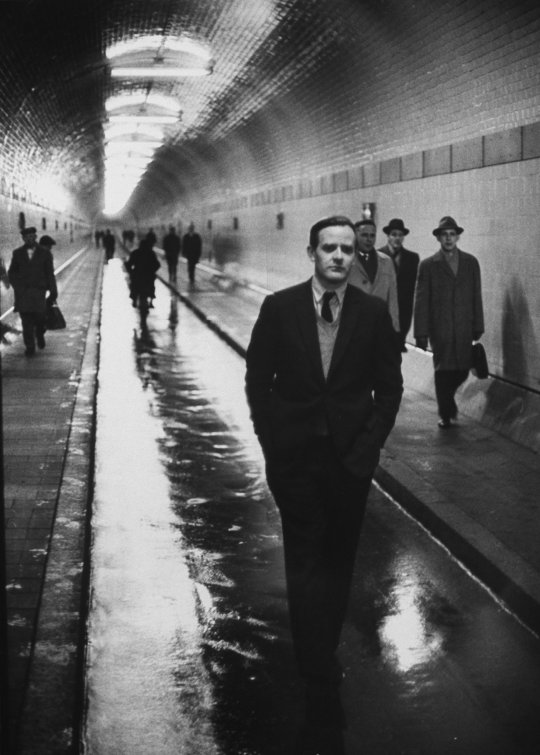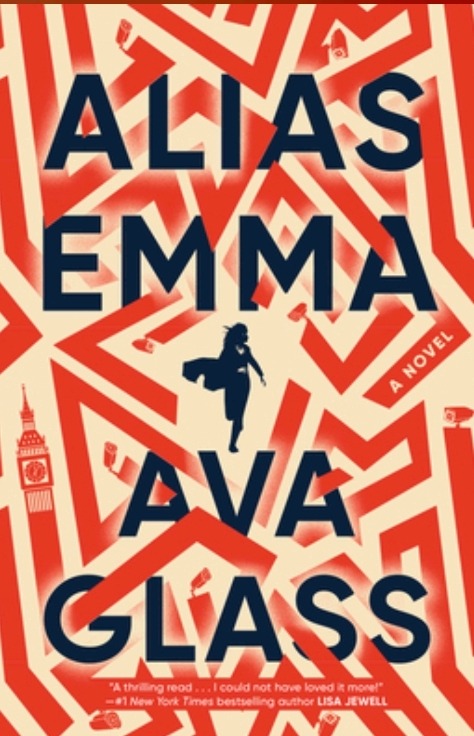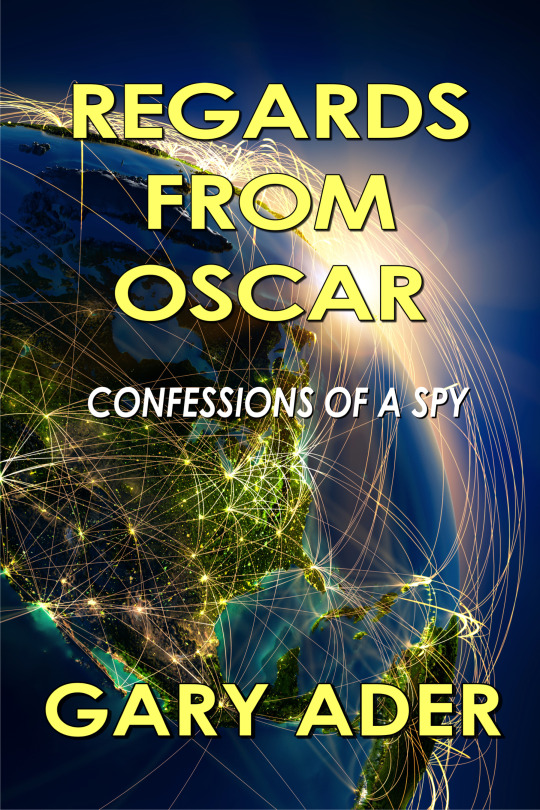#spy novels
Text

@skaphander Look what you made me do! After Slow Horses, I really had no choice.😂
20 notes
·
View notes
Text
So I was writing a Suburban Napollya fic right and I wanted to make a joke about Napoleon calling the spy novel the housewives book club was reading “unrealistic” cause he’s a spy silly joke right? So I decided to google spy novels from the time. About 50% were MUNCLE story’s ngl but there was a series of Spy Erotica called “The Man From O.R.G.Y” which surprised me a little bit but in hindsight the 60s were during the sexual revolution.
Anyway, I never found a novel title to drop so I made the joke without using a novel name but if any of you have spy novels from the 60s or before I wouldn’t mind dropping a name.
8 notes
·
View notes
Text

1980s Cold War anxiety. Espionage. Communist expansion. Nuclear proliferation. Sheena Easton.
You don't need to be a part of Mastodon or the Fediverse to check it out (but you should think about it).
#Tradecraft#1980s#cold war#spy novels#music#espionage#politics#culture#technology#Mastodon#Fediverse#Abel M'Vada
2 notes
·
View notes
Note
Greetings, Tumblr Aunt, I am once again asking advice on reading choices, this time on spy novels. I just finished an exhausting semester that included a prospectus defense, and I wanted to lose myself in a spy novel or a murder mystery. More fool me, I chose Le Carré's The Spy Who Came in from the Cold. I am now deeply depressed.
Are there any Le Carré's that don't end...well...like that? I've only read The Night Manager.
...ah. Have a whisky? Congratulations on the prospectus defense and surviving the semester. Le Carré is, of course, a profoundly humane author, but this does not lead to happy endings. I will say that I think TSWCIFTC boasts perhaps the most bleak (as well as most perfect) of his endings.
Less bleak Le Carré options:
The Russia House (I just dipped back into it to check my memory, and I might need a reread now; it's so good.)
The Constant Gardener (warning: even before this was a film with Ralph Fiennes and Rachel Weisz, it made me cry. And as with The Russia House, the ending of the film is less ambiguous than that of the book. But the protagonists of this novel are stubbornly committed to the quest for justice, and I love them.)
Other spy novels: Alan Furst! If you want spy novels with more reliably happy-ish endings, Furst is the way to go. Le Carré is one of the great English novelists of the second half of the twentieth century. Furst is competent, imaginative, literate, and enjoyable. If you're not expecting Le Carré levels of... everything, I don't think you'll be disappointed. Try Mission to Paris, or Dark Star, or The Spies of Warsaw.
A friend who reads mostly 19th-century literature by choice recently recommended to me the Slough House series, by Mick Herron. I haven't followed up that recommendation yet, but I pass it on!
Finally: have you considered James Bond? I find Fleming's novels fascinating as cultural products/commentaries, as well as compellingly readable.
29 notes
·
View notes
Photo

John le Carré
#John le Carré#le Carré#John le Carre#le Carre#David John Moore Cornwell#Cornwell#British#Britain#United Kingdom#UK#1900's#2000's#2020's#Great Britain#GB#thriller#spy novels#1931#2020#1930's#Poole#Truro#England#English#The Spy Who Came in from the Cold#tinker tailor soldier spy#the constant gardener
43 notes
·
View notes
Text
Rereading LeCarré
[Just in case ... I'm assuming you've read these, because how can I talk about them properly if you haven't? Don't read on if you haven't read Tinker Tailor, think you might want to, and don't want to know what happens. Here be spoilers.]
I’ve been on a LeCarré kick lately, mostly rereading. I tried A Legacy of Spies but it contradicted so many things in the history, Peter Guillam’s parentage and past, most immediately, that I gave up and went back to old favourites. I can’t believe in the reality of a story if it starts contradicting itself in a way that says the author doesn’t care and is, what? Dismissing their previous work as “not real” and not mattering? Is that more offensive than “not caring enough to look it up?” I’ve found a lot of more recent LeCarré doesn’t hold my interest, actually, but I love his earlier work. I read most of those in high school off my father’s bookshelf. The two I go back to reread most often are Tinker Tailor Soldier Spy and Smiley’s People, which I’d guess are probably most people’s favourites. This time I’ve been listening to them as cooking audiobooks read by Michael Jayston, who played Guillam in Tinker Tailor (the proper one with Guiness, not the weirdly bad later one), though Jayston was not in the companion Guiness Smiley’s People, presumably due to some other commitment; too bad, because he was an excellent Guillam. Listening to Jayston’s reading led to getting the DVDs from the library and rewatching those as well.
I think what I’ve always liked about those two books in particular and the other early LeCarré in general is a threefold thing. There’s the impression that this is all part of a long history stretching back into the Second World War; you can puzzle out its roots, see it connecting to real history. There’s the meticulously compounded character portraits -- of the men, anyway. (LeCarré, like Deighton, the other master espionage writer I also devoured as a teen, presents nearly all his women as either functions or as pathologically childish. I realized watching Smiley’s People last night that Madame Ostrakova is a notable exception to this; she has personality, she takes action, she’s a grown-up in her emotions and she has a life beyond her plot-function.) And thirdly, there’s the intricate puzzle of the plots, slowly unwinding. Rereading, you also realize that that is, sometimes, illusion. There’s an intricate puzzle in Tinker Tailor, but Smiley knows that Bill Haydon is the answer; he knows that from the start. He’s only unravelling the proof for himself and for his audience, because he doesn’t want to know it.
Another interesting thing about Tinker Tailor Soldier Spy is that I’m pretty sure it was the first overt depiction of a queer relationship that I came across in fiction, back in the early eighties, and a sympathetic, if tragic, one at that. There’s nothing of the “punishment for being gay” about the tragedy. It’s a grand, proper, Shakespearean-scale thing, emotionally, Haydon’s great personal betrayal of Prideaux entered upon as part of his ideological betrayal of both Prideaux and his country, and the way that leads, inevitability, to his own death. Shakespeare would probably have followed up such an intimate extra-judicial execution with Prideaux’s death in turn, whereas LeCarré sends him back to his school and his students, to the great relief of Bill Roach, who has found in Jim’s brusque acceptance and care the paternal understanding and mentoring his life lacks, while Smiley, who knows damn well how Haydon ended up in the grounds of Sarratt with a broken neck, says nothing. In the end, Jim Prideaux is the emotional core of the story, and he survives betrayal, shooting, torture, discovery of ultimate betrayal, and his own meting out of -- does he see it as justice or vengeance? -- and is shown, through the eyes of Bill Roach, to be finding his way back to living.
A final thought on it -- LeCarré could have been a good children’s writer. He does such a good job getting inside the mind of Bill Roach. When I read it for the first time, I was closer to Roach in age than to any of the others.
7 notes
·
View notes
Text
OK, exorcising myself of this plot bunny by throwing it into the wild; help yourself to this prompt:
A homeless guy (dark, mysterious past?) stumbles on a spy's safe house and decides to squat in it until he's drawn into a dangerous web of espionage and intrigue when he's mistaken for the house's real owner.
#Maybe he and the spy eventually fall in love#Or whatever idk#plot bunny#Writing prompt#Writing#Spies#spy novels#post o' mine
13 notes
·
View notes
Quote
Barbara Mackwayte, in a simple black frock with white linen collar and cuffs, was at her old place in the ante-room.
The simple dark dress with changeable collar and cuffs was a mainstay of many a young working woman in the early 20th Century. The basic dress or many way dress was both practical as it allowed for some variety on a small budget, and restrained, signalling the competence of the wearer. Barbara is indeed competent and brave and adventurous too.
She works as secretary to the head of the British Secret Service in this 1919 spy novel by Valentine Williams called Okewood of the Secret Service. But she also goes into the field to try to help solve the puzzle of her father’s murder and help bring down a ring of spies. While Williams, a journalist and novelist, always put male heroes at the center of his novels, it’s clear he admired brave women too.
#basic dress#many way dress#collar and cuffs#vintage fashion#1910s fashion#fashion in fiction#valentine Williams#okewood of the secret service#spy novels#costume history#dress history#fashion history
6 notes
·
View notes
Text
Lightyears Series - Episode 16 - The Memory Flood
“But you didn’t.”
“I do now. Maybe I didn’t know anyone on the other side who had anything to tell me until now. Is this the way our relationship is going to go? Are you always going to question everything I say and do?”
“I will whenever you say things that are illogical.”
Drew came over to me and studied my readings. After scrutinizing them intensively, he looked back at Jake and concluded,…
View On WordPress
#mystery novel series#mystery novels#science fiction#science fiction author#science fiction genre#science fiction series#space novels#spy novels#women novelists#women sleuths
0 notes
Text
but what if there’s no real evil plan and he just wants his sister back
#this is for a story i’m writing#i didn’t wanna create a note in my phone so i’m doing this instead#spy novels#book idea#creative writing
0 notes
Text
I'm sure this has been said before but it's so funny how super spy extraordinaire Twilight cannot see the big fat elephant in the room that is Damian's crush on anya
you got this kid basically going down a checklist of "how to say you have a crush without saying you have a crush". like by the book. and twilight is worried that him dancing with his crush is gonna make them grow further apart. like...
(on the other hand it's probably a good thing bc who knows what plans he'd concoct knowing Damian's soft spot for Anya)
#im not even big on damianya but good grief twilight#it is so obvious#(also this ch was so cute OBVIOUSLY but i have nothing novel to say on that front LOL)#spy x family#loid forger#damian desmond#anya forger#agent twilight#twilight#sxf manga#sxf chapter 96
1K notes
·
View notes
Text

Thank you Netgalley and Publisher for this Arc!!
I don't think I've really read any other books in the spy/espionage genre so this was really exciting! I loved the background the author supplied about the MC throughout this story. Because of that, this was more than just simply fast-paced and thrilling, it also created a real connection that went deeper.
Emma Makepeace is a young spy and this mission is something that will really prove (or not) that she is worth her salt in the world of espionage. She has to convince a stubborn doctor who is in immediate danger to trust her and allow her to lead him to safety. This begins a chase thru the streets of London with Emma and Michael trying to dodge the GRU nonstop. And, from beginning to end, this book is exhilarating!
I definitely recommend this as a quick and absolutely fun read!
Out August 2, 2022!
#book#bookish#books#bookworm#book review#currently reading#read#bookblogger#reading#netgalley#spy book#espionage#spy novels#alias Emma#ava glass#thriller
0 notes
Text
psa that the day there are no jgy stans left on tumblr dot com is the day i am dead
but rest assured i'll go to my grave exactly as i lived: obnoxiously proclaiming to everyone within earshot how great lianfang-zun is. narratively, metaphorically, spiritually. sexually, too, like why limit myself. i like to keep my options open
#the spirit of su minshan possessed me for a minute there but like. i'm fine with it#jin guangyao#he did crimes??? good for him 😌#editing this post to add that while the tone here is clearly joking#i really am fundamentally still engaged with this fandom#and with this book#almost exlcusively because of my enjoyment of jgy#even xiyao is secondary for me like i love it and i'm ride or die for it obvs#but jgy as a character is the main draw for me. and he would have me by the throat even if there was no zewu-jun#(tho i think jgy's life would be more depressing for his absence obviously)#but he is just. /clenches my fists!!!#THE most compelling character in the story and i cannot stop thinking about him!! cannot will not!!#who else in this book has his range? who else can be the doe-eyed idealist AND the spy with blood on his hands who ends a war?#who else is two different greek tragedies and at least two separate shakespearean tragedies rolled into one antagonist#an antagonist who but for the POV of the novel could very easily have been the protagonist#whose moral event horizon is so deeply entwined with his own trauma and abuse that there is no way to meaningfully separate#the violence he does to others from the systemic violence that was done to him for his whole life?#who else in this book manages to get five separate sect leaders utterly obsessed with him no matter how you choose#to interpret that obsession?#no one!!! that's who!!#ain't no one else in the jianghu doing it like lianfang-zun and that's just a goddamn fact
516 notes
·
View notes
Note
As much as I'd love to talk Carré, I gotta admit I've tried and failed to get through even one of his novels. (I had to do research to even find out which it was, it was The Spy Who Came In From the Cold). It's really a tragedy, as someone who is SUPER into spy stories, political thrillers, and cold war history esp. re: the GDR, I was so ready to enjoy this book. But it just gave me nothing I enjoyed and I gave up halfway through. Also read excerpts of Tinker, Taylor for university and while that was a little better, I can't say I felt the need to get the full novel either...
Is there any novel of his that is markedly different in style or should I just give up on Le Carré if I didn't like that one?
I'm very glad that you've asked this question so that I can say: please, do not give up on Le Carré! One of the things I love about him is the variety of his novels, the precision of their individuality. Also, I'm trying and failing to imagine how reading excerpts of Tinker, Taylor, Soldier, Spy would work, because while the prose is gorgeous, it doesn't strike me as, really, an excerptable novel. A word in defense of TSWCIFTC as well: when I first read it, in my early twenties, I rather forced myself through much of it it, not seeing, really, how it all added up: the deliberations, the compromises, the aspirations, the betrayals. And then I got to the end, started weeping, and immediately started rereading it to try to force the novel and the characters to some other conclusion.
Anyway! Other Le Carré recs: A Small Town in Germany, perhaps the most Austenian of his works, about the functioning and functionaries of Bonn, and postwar/Cold War anxieties in the Bundesrepublik.
For late Cold War anxieties, there's A Perfect Spy, about the (mis)education of a British spy, and the myths and vulnerabilities of the Old Firm. The Russia House is a particular favorite of mine, with the US, UK, and USSR anxiously figuring out what the parameters (and vulnerabilities) of glasnost are, and people figuring out what heroism is required to live with integrity in an era of inhumane states and... I just love it a lot.
You might also enjoy his more recent political thrillers, whether about neocolonialist exploitation (The Constant Gardener,) Islamic fundamentalism and western cynicism/hypocrisy (A Most Wanted Man,) or the feverish extremism of the Brexit/Trump era (Agent Running in the Field.)
#john le carré#espionage#spy novels#so delighted that my 'talk to me about le carré' ploy is paying off#the spy who came in from the cold#a small town in germany#a perfect spy#the russia house#the constant gardener#a most wanted man#agent running in the field#book recommendations
33 notes
·
View notes
Text
And the Story Continues . . .
And the Story Continues . . .
It’s not often one gets to combine one’s vocation with one’s avocation, but author Gary Ader is one who has succeeded in doing so. A onetime travel agent (among many other vocations), Gary has used his experience in that field as fodder for his writing, most recently in his new novel, Regards From Oscar: Confessions Of A Spy, published by Escarpment Press. I thought readers might like to know…

View On WordPress
0 notes